
views
X
Trustworthy Source
PubMed Central
Journal archive from the U.S. National Institutes of Health
Go to source
If you’ve been suffering from regular bouts of nausea, see your doctor to find out what’s causing it first. If your doctor says it’s okay to try CBD oil for your nausea, choose a quality product and be sure to stay in communication with your doctor while you are using it.
Talking to Your Doctor

Work with your doctor to identify the cause of your nausea. There are many different medical conditions that can cause nausea. If you have been experiencing nausea on a regular basis, and you have not yet seen a doctor to determine the cause, make an appointment right away. Some of the most common causes of nausea include: Chemotherapy Gastroparesis Intestinal obstruction Anesthesia Morning sickness (due to pregnancy) Migraine Rotavirus Motion sickness Stomach flu
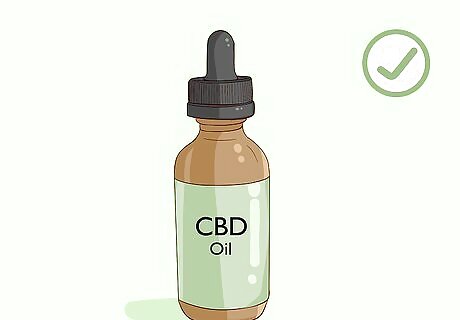
Ask your doctor if CBD oil might be a good option for you. There is some evidence that taking CBD oil may help to reduce nausea and prevent vomiting. If you suffer from regular bouts of nausea, taking CBD oil could be helpful. However, it’s important to talk with your doctor about it first. Let them know that you’re considering taking CBD oil for nausea. Try saying something like, “I’ve heard that CBD oil can be beneficial for nausea and I’d like to try it. What do you think?” Warning: Be aware that CBD oil is not recommended for pregnant or breastfeeding women due to the lack of information regarding its effects.
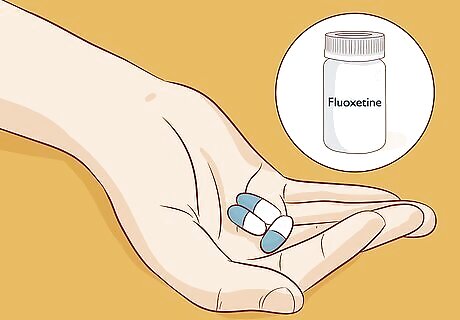
Tell your doctor about any medications you are taking. CBD oil can react negatively with certain medication. It may increase or decrease the level of a drug that’s in your system. This can be dangerous in some situations or cause your medications to be less effective. Don’t take CBD oil without consulting your doctor first if you take a medication that may react with it. Some of the medications that are known to react with CBD oil include: Antidepressant medications, such as fluoxetine, citalopram, and other selective serotonin inhibitors Anti-epileptic medications, such as clobazam, topiramate, and rufinamide Anti-psychotics, such as risperidone Blood thinners, such as warfarin Antacids, such as omeprazole NSAIDs, such as diclofenac Antifungals, such as ketoconazole
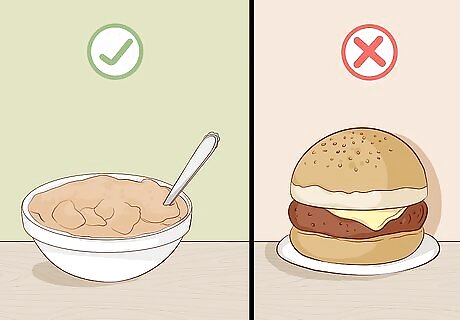
Try other options for controlling nausea if CBD oil is not an option. If your doctor does not recommend taking CBD oil, then there are several other strategies you can try. You may also want to integrate these strategies along with using CBD oil. Some strategies that may help to reduce or prevent nausea include: Eating bland foods and avoid salty, fatty, and spicy foods Drinking small sips of clear liquids often Munching on saltine crackers Having small, frequent meals Avoiding strong odors
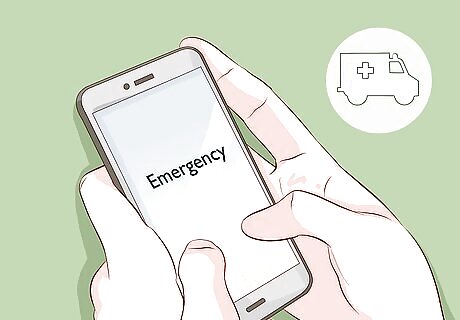
Seek emergency medical attention for severe symptoms. In some situations, nausea and vomiting can indicate a serious condition that requires immediate medical attention. Don’t delay if you have any serious symptoms! Call emergency services or go to the emergency department of your nearest hospital right away if: You think you might have been poisoned There’s blood in your vomit You’ve been vomiting for more than 24 hours You have severe abdominal pain You have a severe headache or stiff neck You appear to be dehydrated, such as with dry mouth, dark urine, and infrequent urination
Taking CBD Oil
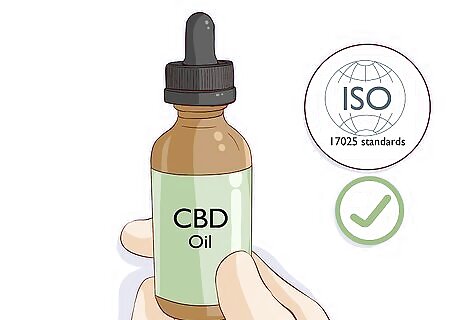
Ensure the product states "meets ISO 17025 standards" on the manufacturer’s COA. Always do this before you buy any CBD oil product. CBD oil manufacturers share their Certificates of Analysis (COAs) as proof that they have a quality product. If the COA states that the product meets “ISO 17025” standards, this indicates that the lab was one that has high scientific standards for their testing practices. The COA includes information about the product’s CBD and THC levels as well as any additional contaminants were found in the product. Don’t buy CBD oil from a manufacturer without a COA or from a manufacturer who refuses to share their COA.
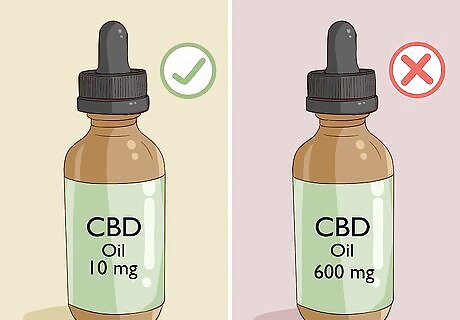
Take a low dose of CBD oil to start and increase it only if needed. See what the manufacturer of the CBD oil product you’ve chosen recommends, but try to find a low dose product, such as 10 mg. Take the lowest suggested dose and see if this relieves your nausea. If it doesn’t, increase the dose the next time you take it. Keep increasing the dose a little each time until you find the amount that works for you. Once you find a dose that works for you, stick with it. Avoid high doses of CBD oil—between 150 to 600 mg—if you do not want a sedative effect.
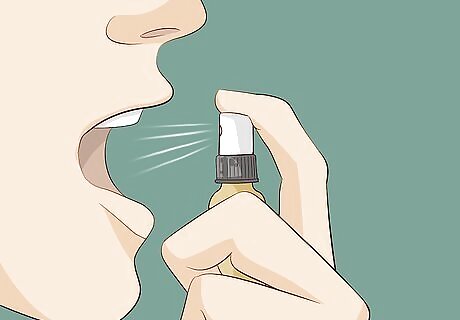
Use sublingual CBD oil spray or drops to avoid further stomach upset. CBD oil is available in sublingual (under the tongue) drops and sprays. Administering CBD oil in this way may allow you to feel the anti-emetic (anti-nausea) effects quickly, such as in about 15-30 minutes. Taking drops under the tongue rather than in food also poses a lower risk of upsetting your stomach. You may need to repeat the dose every 4-6 hours or as indicated by the product’s label to maintain the anti-emetic effects. Follow the manufacturer’s instructions for how many drops or sprays to use in each dose. Tip: You could also add CBD oil drops to bland foods or clear liquids, such as on a piece of dry toast or in a cup of peppermint tea.
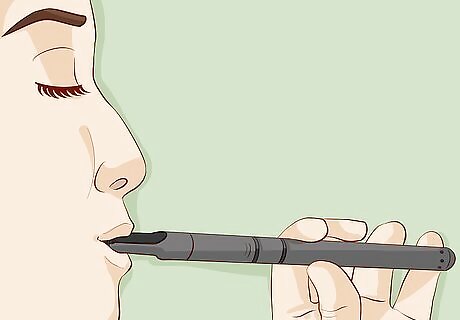
Inhale vaporized CBD oil with a vape pen for quicker relief. Vaping with CBD oil is the fastest way to get it into your system. Taking a dose in this way should produce effects within a few minutes. However, you will need a vaporizing device if you don’t have one already. Inhale 1 time and wait for a few minutes. If your nausea does not subside within 5 minutes, repeat the dose. Follow the manufacturer’s instructions for how much CBD oil to use. Be aware that inhaled CBD oil leaves your system more quickly than with other methods. Take a dose every 2-3 hours to maintain the anti-emetic effects.
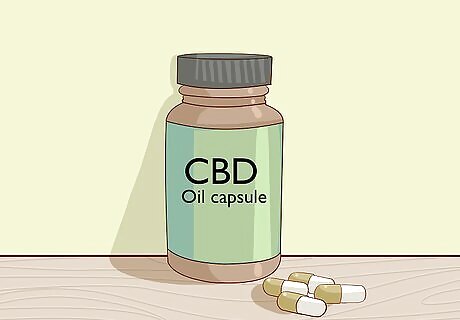
Take a CBD oil capsule for an ingestible option that’s not flavored. If you’d rather swallow a CBD oil capsule than placing it under your tongue or vaping it, be aware that it will take 30 to 90 minutes for it to take effect since it will have to pass through your digestive system first. This might not be the best option if you are nauseous and looking for quick relief.
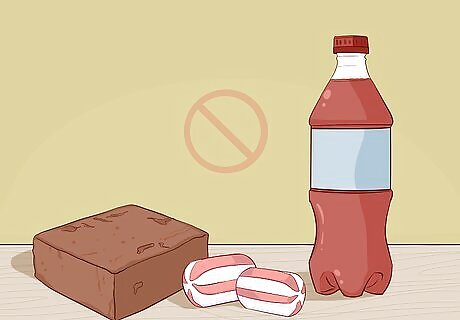
Avoid edibles that might upset your stomach. CBD oil also comes in the form of edibles like candy, baked goods, and beverages. Edibles make taking CBD oil easy, but certain foods and drinks may irritate your stomach even more. If you’re too nauseous to eat, try sublingual drops or vaping CBD oil instead. Keep in mind that you may not feel the effects of CBD oil for 30 to 90 minutes after ingesting it. If you need quick relief, try a different delivery route.

Stop taking CBD oil and call your doctor if your nausea gets worse. Although it’s rare, CBD oil may worsen nausea and even lead to vomiting in some people. If this happens to you, stop taking it and call your doctor. You should also stop taking CBD oil and call your doctor if you develop any of these symptoms: Diarrhea Dry mouth Drowsiness Loss of appetite and weight loss Fatigue Abdominal pain

Stay in touch with your doctor whether or not CBD oil helps. If CBD oil stops your nausea, this is a great result. However, it’s important to stay in touch with your doctor regarding your condition. Tell them if CBD oil is not helping, and ask about your other options for relieving nausea. There have not been any long-term studies of the effects of CBD oil on people, so adverse effects are possible. Your doctor may want to monitor your health more closely while you take CBD oil.




















Comments
0 comment